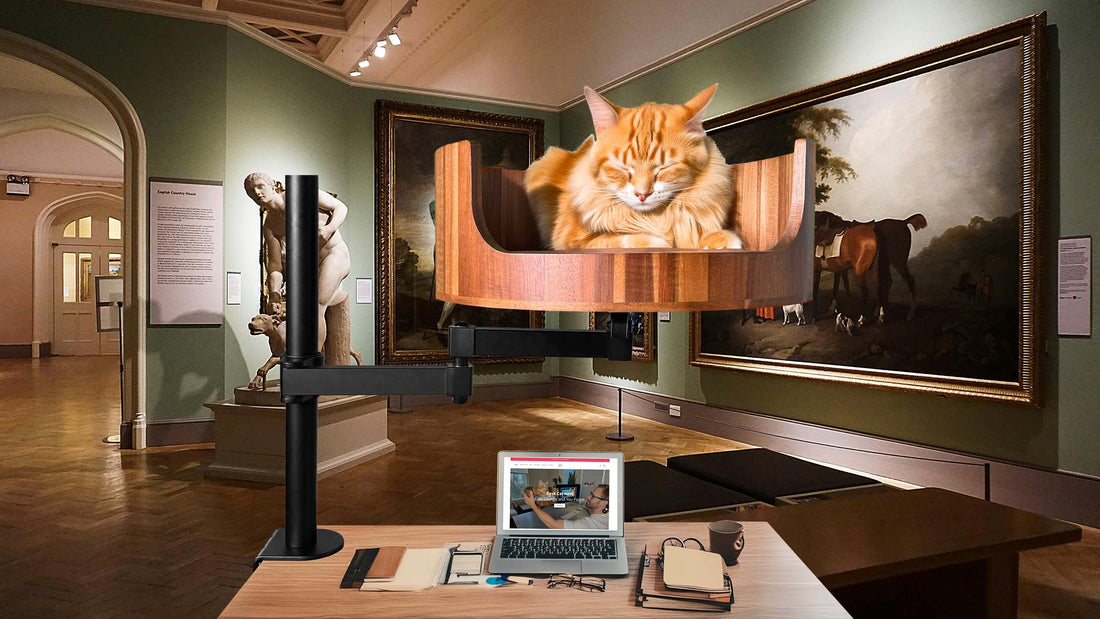
Why My Cat Pee on My Bed: Understanding the Behavior
Share
If you're a cat owner, you've likely experienced the frustration of finding your furry friend using your bed as a bathroom. It's a common issue that many cat owners face, and understanding why cats pee on beds can help address the behavior and prevent future incidents. In this article, we will explore the reasons behind this behavior and provide helpful tips on how to manage it effectively.
One possible reason your cat may be peeing on your bed is due to stress or anxiety. Cats are sensitive animals and changes in their environment, such as new pets, moving to a new home, or changes in their routine, can trigger stress-related behaviors like inappropriate urination. Additionally, medical issues such as urinary tract infections or kidney disease can also cause cats to urinate outside of the litter box. By understanding the potential reasons behind your cat's behavior, you can take steps to address the underlying cause and help your feline friend feel more comfortable in their environment.
1. Cats may pee on your bed due to stress, health issues, or territorial marking, so it's important to rule out medical causes first.
2. Changes in routine, new pets, or unfamiliar scents can trigger this behavior in cats.
3. Using a high-quality enzymatic cleaner will help remove the scent of urine and discourage repeat incidents.
4. Providing a safe and private litter box area can help prevent accidents.
5. Seeking advice from a vet or animal behaviorist can help address the root cause of your cat's behavior.
Causes of Cats Peeing on Beds
One of the main reasons why cats pee on beds is due to stress or anxiety. Cats are very sensitive animals and any changes in their environment can lead to stress, causing them to act out by peeing outside the litter box. Medical issues such as urinary tract infections or bladder stones can also cause discomfort and lead to inappropriate elimination. In some cases, cats may be marking their territory to establish dominance or attract a mate. It's important to identify the underlying cause before addressing the issue.
Preventing Cats from Peeing on Beds
To prevent your cat from peeing on your bed, start by ensuring they have a clean litter box in a quiet, accessible location. Regular cleaning and maintenance of the litter box are essential to prevent accidents. Providing plenty of mental and physical stimulation through toys, scratching posts, and interactive play can help reduce stress and anxiety. If your cat continues to pee on the bed, consider consulting with a veterinarian or animal behaviorist to address any underlying medical or behavioral issues.
Treating Cats Who Pee on Beds
If your cat has already developed a habit of peeing on the bed, it's important to clean up the area thoroughly to remove any lingering odors that may attract them back to the spot. Use an enzymatic cleaner specifically designed for pet stains to effectively eliminate urine odor. In some cases, you may need to confine your cat to a smaller space with their litter box to retrain them to use it properly. Positive reinforcement and consistency are key when treating inappropriate elimination behavior. Remember to be patient and understanding as you work to address the issue with your cat.
Frequently Asked Questions
Why is my cat peeing on my bed?
There are several reasons why your cat may be peeing on your bed, including territorial marking, medical issues, stress, or inappropriate litter box conditions. It is important to consult with a veterinarian to rule out any medical concerns before addressing behavioral issues.
How can Desk Cat Nest help with my cat peeing on my bed?
Desk Cat Nest provides a comfortable and safe space for your cat to rest and play, which can help reduce stress and anxiety that may lead to inappropriate urination. Additionally, the nesting materials in Desk Cat Nest can help simulate their natural instincts, encouraging proper elimination habits.
Will Desk Cat Nest prevent my cat from peeing on my bed entirely?
While Desk Cat Nest can help address underlying issues that may cause your cat to pee on your bed, it is not a guaranteed solution. It is important to address any medical concerns and provide proper litter box conditions to help prevent future accidents.
How should I introduce Desk Cat Nest to my cat?
Introduce Desk Cat Nest gradually by placing it in a quiet and comfortable area for your cat to explore at their own pace. Encourage positive associations with the nest by providing treats and toys nearby, ensuring your cat feels safe and comfortable using it.
Can Desk Cat Nest be used for multiple cats?
Desk Cat Nest can be used for multiple cats as long as there is enough space for each cat to have their own nesting area. It is important to monitor interactions between cats to ensure they feel comfortable sharing the space.
In conclusion, addressing the issue of why your cat may be peeing on your bed is crucial for maintaining a harmonious living environment. Desk Cat Bed offers a practical solution by providing a comfortable and designated space for your cat to rest and relax. By providing a dedicated sleeping area, Desk Cat Bed can help alleviate stress and anxiety in your cat, ultimately reducing the likelihood of unwanted bathroom accidents on your bed. Invest in a Desk Cat Bed today to create a cozy sanctuary for your feline friend and promote good behavior in the long run.


















































